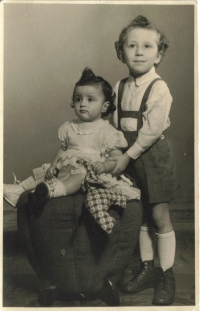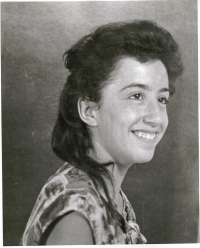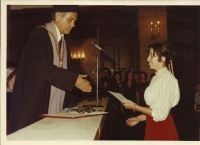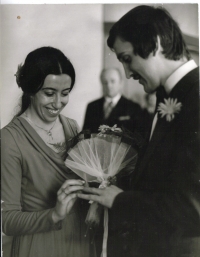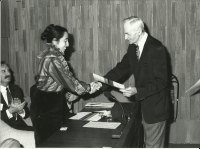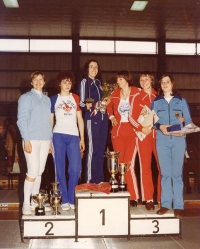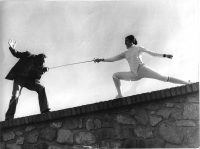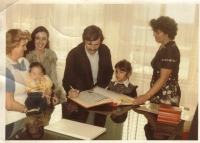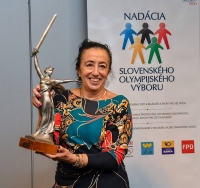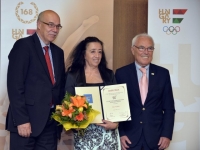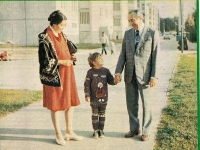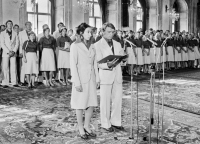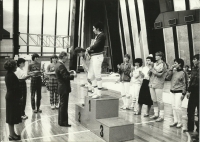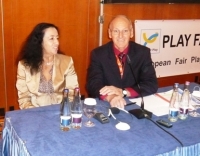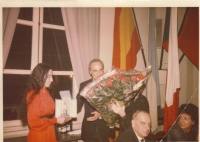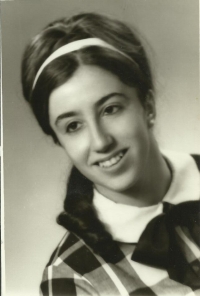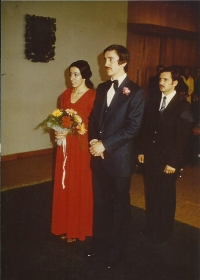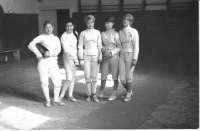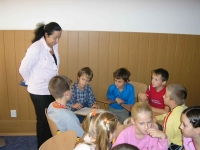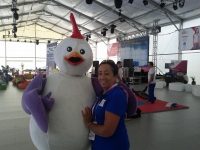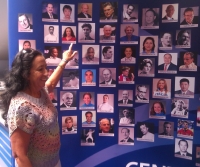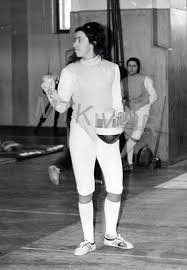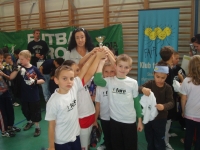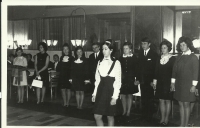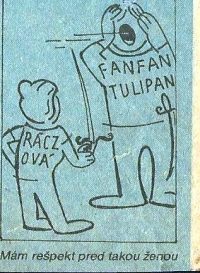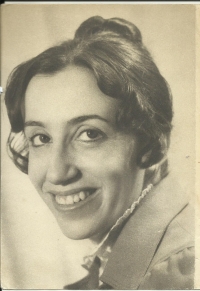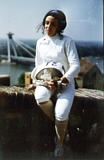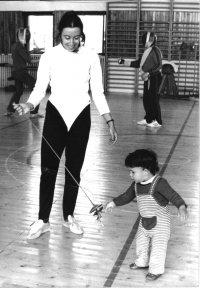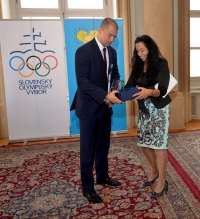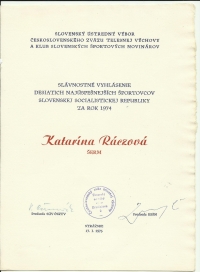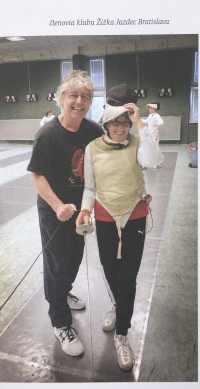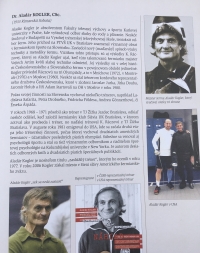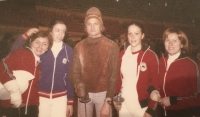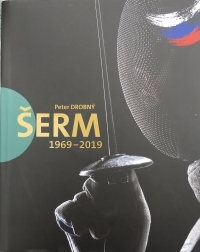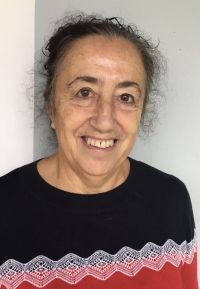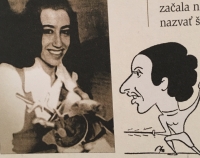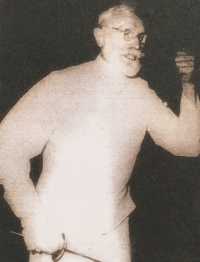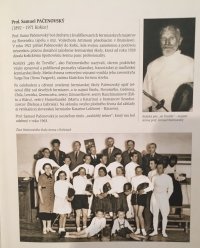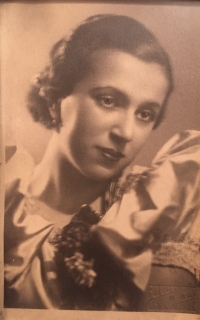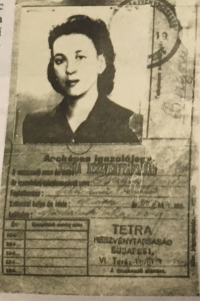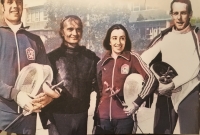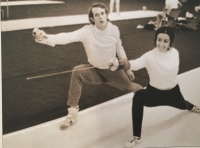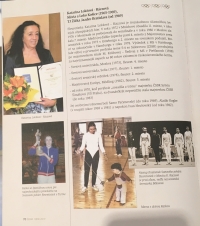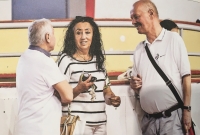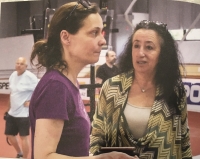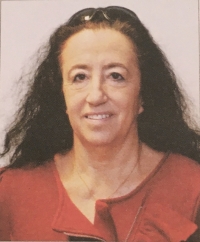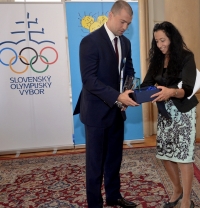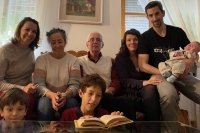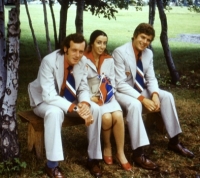"My parents led us to play sports. So we had a relatively healthy lifestyle at that time. I tried different sports, I started with gymnastics, figure skating, swimming and an older brother, he started fencing. And I suppose it was easier for my parents when I went to fencing too. We didn't have a car, so it was a slightly different life that it was easier for them when we went together, together for fencing. The beginnings were cruel because I didn't like it. I didn't know what it was and I had nothing to do with it. It is said that fencing also requires certain intellectual abilities, so my brother has a sense of distribution, and I kept saying that I was left with nothing because he inherited everything. And so I wasn't thrilled and I cried that I didn't want to go there until my first coach, professor Samo Pačenovský, did such a celebration at the end of the year for, for the swordswomen, for those who went to the races and won. The Košice section was also extremely successful within Czechoslovakia, so we had enough of those successful fencers in the section, and then these, these winners of all-Czechoslovak tournaments, were considered real fencers, like knights. And the celebration looked like professor Pačenovský was a slender, tall man, white hair, white beard, white chin, and now fencing clothes all in white. He was wearing such a red ribbon and brought a sword on a red pillow. The swordswomen knelt in front of him, and he patted them on the shoulder with the weapon, like now you were a real swordswoman. And I'm quite a romantic soul, I saw this ceremony and I say, oh I would also like to experience it, so that professor Pačenovský would fit me like a successful swordsman, and that was the moment when I started training and, for the soul. And after two years of training, we went to the first national races, and those races for x years had already been won by Košice fencers, but ours, our two strongest, one was injured and the other was... she was sick. So after two years of training, I was supposed to represent them and my friend Marika had to help me. And the day before we traveled to Brno for the tournament, professor Pačenovský called us and said, and now I will tell you what to do there in Brno at the tournament. And now we have open eyes, mouths, ears, now we will learn the big secret of why Košice fencers are so successful. And professor Pačenovský told us, but you have to have four hits before you get it from your opponent. At that time it was fencing for four hits, now it is fencing for five. So it was a big wonder that we had to show our opponents in Brno, but in the end it came to his words because, because I won the tournament and Marika really helped me with it, encouraged me, gave me good advice in life and it was my first, first tournament, winning."

